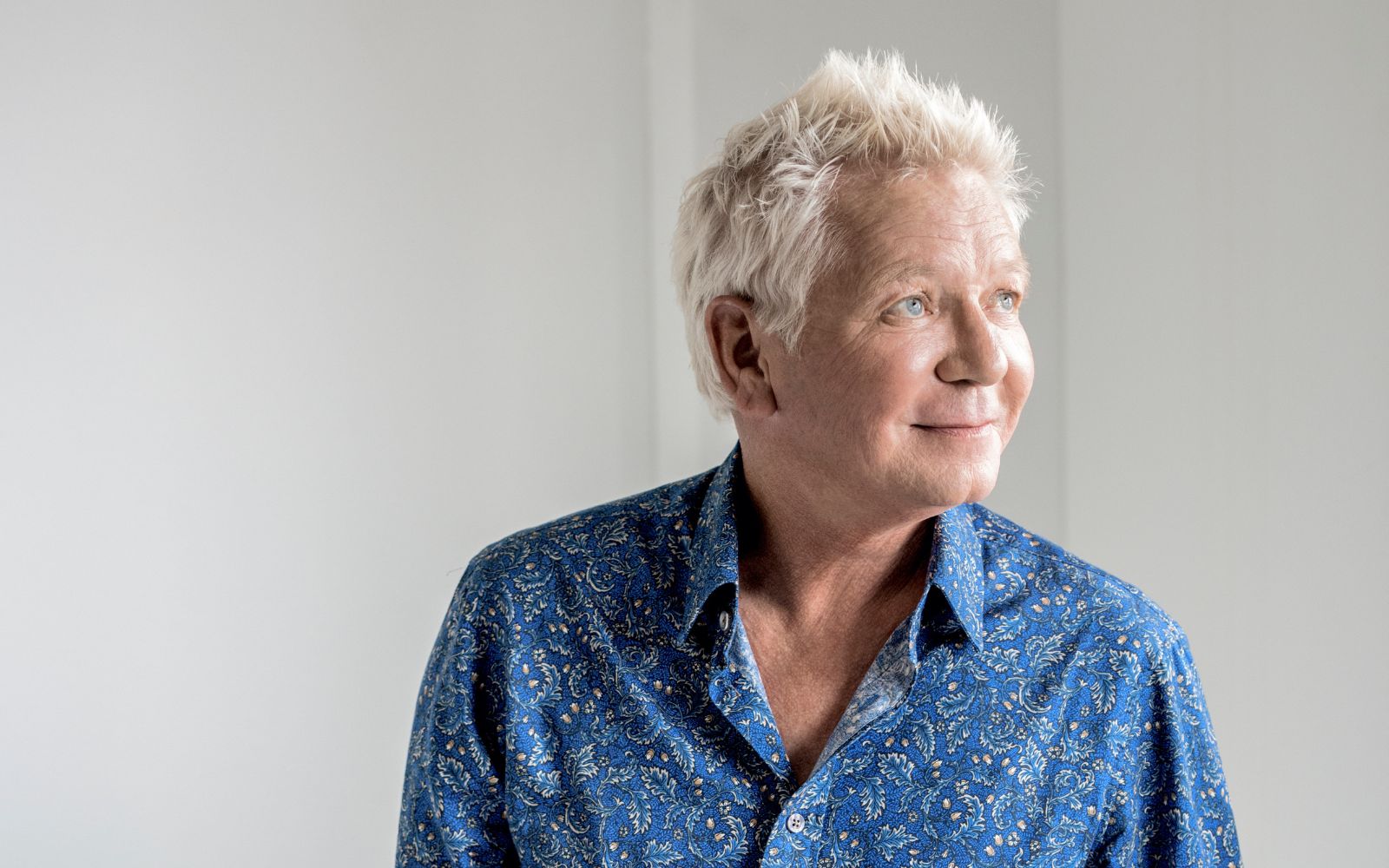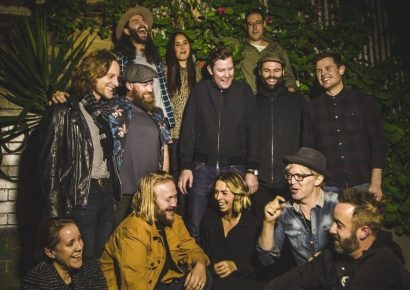Icehouse front-man Iva Davies is reminiscing on the golden days, but bewildering at Great Southern Land’s enduring impact.
“I never understood the way people reacted to Great Southern Land and I probably still don’t – it was a kind of magic that everyone but me heard.” Speaking on the phone from his home in Sydney’s picturesque Whale Beach, Icehouse front-man Iva Davies seems surprisingly avuncular for an Australian music legend who toured with David Bowie.
Keep up with the latest music news, features, festivals, interviews and reviews here.
Icehouse is coming to Melbourne’s Sidney Myer Music Bowl on Saturday 11 February to celebrate 40 years since the release of their 1982 single Great Southern Land; an enduring centrepiece of Australian national identity and music culture.
Davies is a living legend and the mastermind behind Icehouse. He’s worn pretty much every hat you can in the music industry. He has also mastered his fair share of instruments, from his orchestral roots on the oboe to his most iconic form, the electric guitar.
His story starts with unlikely beginnings set against the backdrop of Wauchope – a small town in regional New South Wales, where his early introduction to classical music studies saw him on a trajectory to be playing from a chair for the rest of his career.
“Classical music was a complete accident at both ends – getting in and getting out,” he says. “When I was about four years old, there was a parade going on in town and I heard this extraordinary sound approaching. It turned out to be the local Scottish pipe band. Believe it or not, I fell in love with the bagpipes – so much so that I pestered my parents to let me learn.
“On my first day of high school, the music teacher asked if any of the boys played instruments. I innocently put up my hand; ‘yes sir – bagpipes’. He turned grey and replied, ‘I think you should learn to play something more sociable – we have a spare oboe in the storeroom’. Apparently, I became very good at it because I won a scholarship to the New South Wales Conservatorium of Music and became the principal oboist of the ABC National Training Orchestra.
“Around that time, I took my beautiful hand-made French oboe – bought at extraordinary expense by my father and mother – to Sydney’s leading woodwind repairer. When I got it back, I couldn’t get a note out of it. That was basically the end of my classical career. I was unemployed and had to pay the rent, so I got two cleaning jobs.”
Davies met Keith Welsh while working as a cleaner. Welsh was the son of Davies’ manager and he could play the bass, while Davies had privately been teaching himself the acoustic guitar. The two co-founded the band then known as Flowers in 1977. At this time Davies had never played in an electric band, but the two liked the same sort of music; T.Rex, David Bowie, Iggy Pop, Lou Reed and Brian Eno – all of which they’d cover during their pub circuit era.
“At the start, Keith went around to pubs asking if we could play there on a Friday night,” Davies says. “Our first show was in a pub that had never had a band play before, so we just set up in the corner. It was very DIY.
“It was great fun but there was a point where I started freaking out – I was about 24. I was still working these two cleaning jobs and playing with the band at night, but we weren’t making any money, we were paying ourselves something like $60 a week and my rent was $45. I actually applied for a new course at the Conservatorium and said ‘if I get in, that’s the end of the band’. Luckily, they didn’t take me, so we just carried on. When the first single came out [Can’t Help Myself], I made a bet with one of our record label owners that we wouldn’t get into the top 40 – and I lost that bet.”
Upon returning from tour, Davies explains he was under immense pressure to produce a second album – a task left entirely up to him. The inspiration for Great Southern Land came on Icehouse’s first international tour, inspired in equal parts by homesickness and awe having flown over Australia’s vast red centre on the band’s way to London.
“I was staring out the window for a while, looking down at the outback; dried-up creek beds and not a lot to look at,” he continues. “I went to sleep and many hours later I looked out the window and it was exactly the same. It was a real light-bulb moment for me – recognising how enormous and vast the land is. Then having that six-month tour, our first time away, I became incredibly lonely and homesick. I was on the other side of the world and I just wanted to go home.
“When we got back I had nowhere to live – I’d given up my flat for the six-month tour. I couch-surfed for a while and stayed at Rick Brewster’s place [lead guitarist of the Angels] while they were touring. The songs that were on that first album had been accumulated slowly over three years and I now suddenly needed a new album in a matter of months. When I could finally buy my own house, as soon as I got through the door I sat down and wrote Great Southern Land.”
In 1982, Icehouse released Great Southern Land as a lead single for their sophomore album Primitive Man, where Davies moved from his pub-rock sound towards new-wave and synth-pop styles.
While it didn’t enjoy the chart success as other Icehouse hits like Electric Blue, Crazy and My Obsessions from the Man of Colours album (1987), it has a uniquely enduring quality. Having had Qantas Dreamliner’s named after it, the Australian cricket team use it as their walk-out song, and an extended orchestral version played at the Sydney Opera House to ring in the countdown to the new millennium, Great Southern Land continues to embed itself in Australia’s lifeblood.
“I played Great Southern Land to the studio as my first song of 10 to show that I was getting to work and everything was underway,” he says. “The studio reacted straight away and knew we had something, while I was back at home freaking out trying to finish the rest of the album.”
From thereon, Great Southern Land saw Icehouse redefined as an Australian household name, bringing Davies enormous success and a whole new stratum of opportunities. He worked on Master and Commander: The Far Side of the World with Peter Weir, co-collaborated with John Oates on Icehouse’s Electric Blue, and was awarded the late Queen’s Birthday Honour, among many, many other things. Davies reminisces particularly fondly on his memories while touring with Bowie in 1983.
“Touring with Bowie at his absolute peak was an incredibly exciting period,” he says. “We were playing to 45,000 to 70,000 people every show. Recently someone found a photo of one of our concerts at Milton Keynes. The stage was at the bottom of a gradual hill. It was taken from the perspective of the lighting rig so in the foreground of the photo there’s Bowie in his canary yellow suit and then you see people stretching out as far as the eye can see – over the rolling hills. It was an incredible experience. It was just massive”.
Davies is the only enduring member of the band which has seen talent fade in and out over the last four decades. Next to Davies is drummer Paul Wheeler, who joined the band in 1986 when he was just 17 years old.
“I didn’t realise just how young Wheeler was at the time,” he says. “He deliberately didn’t tell me that he was still doing his HSCs because he thought it would lose him the job. It’s kind of a band joke that Wheeler, right before we were about to board our flight for our international tour, had never been on a plane before and he asked our manager ‘Larry, do we get lunch on the plane?’ He was 17 and completely clueless. It was priceless.”
Icehouse is playing Sidney Myer Music Bowl on Saturday February 11 as part of Arts Centre Melbourne’s Live at the Bowl program. Find tickets and more information here.
Beat is an official media partner of Live at the Bowl.

